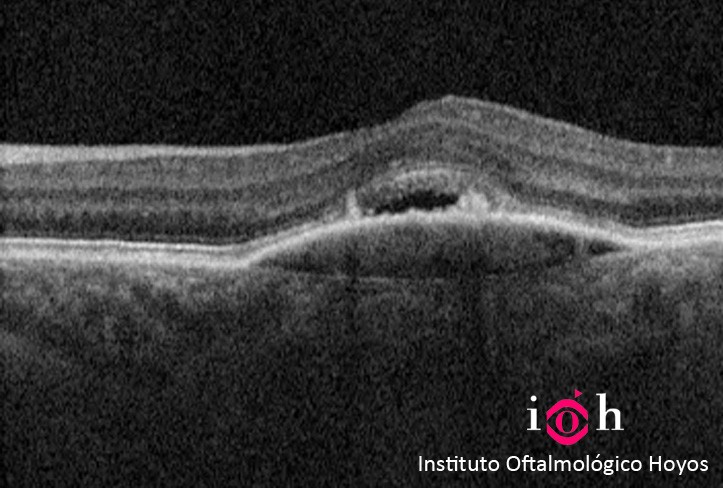INTRAVITREAL INJECTIONS
Intravitreal injections are a minimally invasive technique which has been shown to be effective in the treatment of numerous vitreoretinal diseases. Their use, thanks to new medications and recommendations, has become generalized in recent years. However, performing this technique without having taken the appropriate precautions, may result in serious complications, especially infections.
Over the last number of years the use of this type of injection has had an exponential growth, due to the expansion of its clinical applications. The most commonly used medications are :
- Triamcinolone Acetonide, which is used for macular edema, vascular alterations, intraocular inflammations (uveitis)...
- Intravitreal implant of dexamethasone (Ozurdex), which is used for macular edema, whether that be due to diabetes, vascular occlusions of the retina or intraocular inflammations (uveitis). This is a minute implant which will gradually dissolve over a six-month period, releasing the medication in this way into the eye.
- Fluocinolone Acetonide implant (Iluvien), which is used for macular edema, whether that be due to diabetes, vascular occlusions of the retina or intraocular inflammations (uveitis). This is a minute implant which will gradually dissolve over a three-year period, releasing the medication in this way into the eye.
- Anti -VEGF drugs (Vascular Endothelial Growth Factor), which are used principally for wet or exudative ARMD, although it is also used in diabetic macular edema or in cases of ocular neovascularization. Nowadays there are various drugs : Bevacizumab, Ranibizumab and Aflibercept. And next year Brolicizumab will be coming out..
We are applying these treatments to a large number of patients and we plan to continue doing so, until other ways are found which are as ,or more, efficient than this to put drugs into the eyeball. Meanwhile , we are carrying out these injections repeatedly, until a way is found to keep medication inside the eye or that its therapeutic effect can last for longer periods of time.
It is your ophthalmologist who, after checking your case, will recommend which type of treatment should be carried out.

